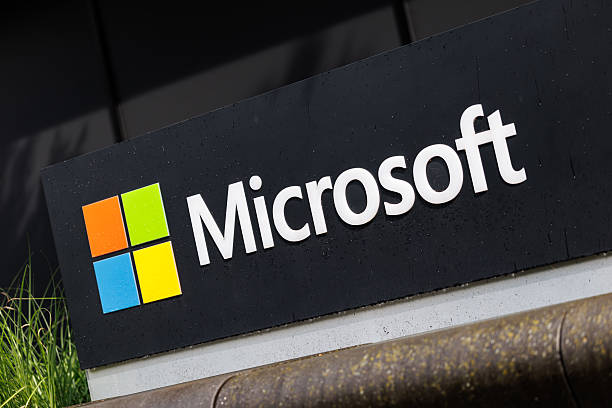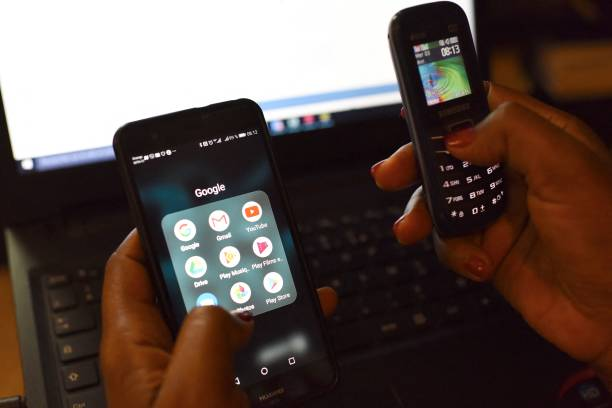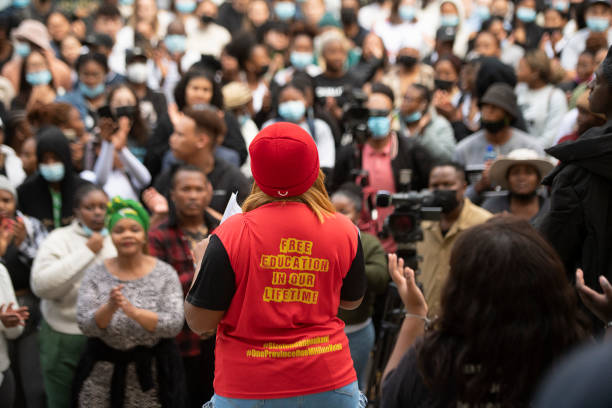In the Shadows of the Signal: How Africa is Fighting a War It Cannot See

A New Kind of Invasion
Not all wars are fought with rifles and rockets. Some are waged through silence—through blinking cursors, open ports, and malware crawling unseen in the digital veins of a continent not yet ready. And this is Africa’s current war.
When Microsoft’s Africa office released its cybersecurity threat update this August, few expected its findings to read like a battlefield report. Yet, that is what it is. In the elegant language of corporate advisories and technical detail, the company laid bare an uncomfortable truth: Africa is now under siege—not by foreign troops on horseback, but by hackers with keyboards, malware, and time.

SOURCE: gettyimages
This is not a metaphor. It is a quiet war, already unfolding, often unnoticed by those it is meant to destroy. But for anyone listening—especially those who remember the lessons of colonization, of resource theft, of slow erosion masked as progress—the warning is clear: history may not be repeating itself with chains, but with codes.
The Rise of the Silent Enemy
The data Microsoft presented was unnerving. In the past year alone, cyberattacks on African institutions have surged by over 400%. Governments, banks, hospitals, even educational systems—all have found themselves vulnerable to breaches, leaks, and shutdowns. From phishing scams targeting civil servants in Ghana to ransomware attacks on telecom companies in Kenya, the continent is no longer a bystander in global cybercrime. It is a target.
And what makes this enemy so terrifying is its invisibility. There are no marching armies. No invading fleets. No flags to burn or borders to defend. Instead, there are networks—unsecured, outdated, or poorly protected—through which Africa’s digital identity is being siphoned, reshaped, and, in some cases, sold.
This is no longer about stolen Facebook accounts or fake bank alerts. This is about critical infrastructure—electricity grids, national security databases, transport systems—being hacked, shut down, or held hostage. And it is happening more frequently, more quietly, and with devastating cost.
How the Internet Became the New Berlin Conference
It is easy to assume this is just a technological issue. But that would be a mistake.
Africa's vulnerability is not technical alone—it is historical. The continent, having spent centuries as the laboratory of colonial powers, is now being digitally recolonised. Where once outsiders took gold, cocoa, and oil, they now take data—slowly, discreetly, and with little resistance.
Microsoft’s report did not name names. But its implications were clear. Much of the cyber warfare against African institutions originates outside the continent. Some of it is criminal—driven by cartels in Eastern Europe and Asia. But some of it, we must admit, is more calculated. Some of it is about access: knowing how our governments function, what our banks are doing, and where our people live, work, and vote.
And like the European treaties of the 1800s, this new data war is happening in boardrooms far from African soil. Only this time, the resource is not rubber or diamonds. It is information—and Africa, once again, is poorly equipped to control it.
Why Africa Is So Easy to Hack
The root of Africa’s cyber vulnerability lies in its development paradox: rapid digital expansion without corresponding digital protection.
Across the continent, governments have embraced digitization. Ministries have moved to cloud systems. Hospitals now store patient records electronically. Schools run online assessments. Banks offer digital wallets to customers who, until recently, didn’t own bank accounts. This is progress—undeniably.
But with this progress came exposure. For every online portal launched, there is a firewall left unpatched. For every public database created, there is an employee using “123456” as a password. Microsoft found that a large percentage of institutions across Africa still use outdated software, lack cybersecurity frameworks, and do not invest in personnel trained in cyber defense.

SOURCE: gettyimages
In some African countries, cybercrime units are underfunded, under-trained, or nonexistent. Meanwhile, attackers are learning faster, experimenting, and adapting. They know which systems are weak. They know which countries are distracted by elections, or debt negotiations, or internal conflicts. And they wait—because silence is their greatest weapon.
The Cultural Cost of Ignorance
But the cost of cybercrime is not just economic. It is also psychological, political, and cultural.
When a government’s website is hacked, and its public records deleted or manipulated, it is not just a technological failure. It is a loss of legitimacy. When mobile money platforms are hijacked and thousands of users lose their funds overnight, it is not just a business glitch. It is a breakdown of trust. And when hospitals can no longer access patient files, and people die as a result, it is no longer just a crime. It is violence.
Across many African societies, where the memory of corruption, failed states, and political betrayal runs deep, the digital space was seen as a new frontier—cleaner, more efficient, and more inclusive. Now, with every cyberattack, that illusion is cracking. If people no longer trust their governments to protect their online identities, how long before they stop trusting them altogether?
From Data to Dependency
Microsoft’s report was more than a warning. It was also a call—perhaps even a plea—for African nations to take ownership of their digital sovereignty.
At present, much of the continent’s digital infrastructure is owned, operated, or maintained by foreign entities. From mobile networks to cloud servers, the critical veins of African data flow through systems that governments neither control nor fully understand. Some African nations host foreign data centers without full transparency. Others adopt foreign cybersecurity solutions without demanding local accountability.
This is digital dependency. And it is as dangerous as any debt trap or arms deal.
For Africa to defend itself, it must first know itself. That means investing not just in firewalls, but in education. Not just in software, but in sovereignty. Cybersecurity must be taught in schools. It must be budgeted into national plans. It must be localized, not outsourced. We cannot continue to let foreign firms guard our digital homes.
What Is to Be Done?
The path forward is not easy. But it is clear.
First, African governments must develop national cybersecurity strategies that are public, funded, and enforceable. Too many policies are either non-existent or buried in bureaucratic haze.
Second, the continent must begin training its own cyber defenders—ethical hackers, data analysts, digital forensic experts—who understand not just code, but context. We need cybersecurity personnel who speak Swahili, Hausa, Yoruba—not just Python and Java.
Third, we must regionalize defense. Just as we have ECOWAS, SADC, and the AU, we need a Pan-African Cybersecurity Council—a body that can share intelligence, coordinate response, and train future leaders.
And finally, we must change the culture. The average African must understand that a text message can be a threat, that a bank link can be a trap, and that privacy is not a Western luxury. It is an African right.
Conclusion: Not Just a Threat—An Opportunity
There is no denying that cybercrime is rising in Africa. But there is also no denying that Africa can rise with it.
This is our moment—not just to defend, but to define. To decide what kind of digital society we want to build, who we want to protect, and what we will no longer accept.

SOURCE: gettyimages
The continent has the youngest population in the world. That is not just a statistic. It is a weapon—if used wisely. These young Africans, raised in the era of smartphones and social media, can become the continent’s greatest cyber army—not of destruction, but of defense, design, and dignity.
But they need vision. They need trust. And they need leaders who understand that the next scramble for Africa will not come with gunboats. It will come with USB drives.
Let us be ready—not as victims, but as visionaries.
Recommended Articles
There are no posts under this category.You may also like...
Super Eagles Fury! Coach Eric Chelle Slammed Over Shocking $130K Salary Demand!
)
Super Eagles head coach Eric Chelle's demands for a $130,000 monthly salary and extensive benefits have ignited a major ...
Premier League Immortal! James Milner Shatters Appearance Record, Klopp Hails Legend!

Football icon James Milner has surpassed Gareth Barry's Premier League appearance record, making his 654th outing at age...
Starfleet Shockwave: Fans Missed Key Detail in 'Deep Space Nine' Icon's 'Starfleet Academy' Return!

Starfleet Academy's latest episode features the long-awaited return of Jake Sisko, honoring his legendary father, Captai...
Rhaenyra's Destiny: 'House of the Dragon' Hints at Shocking Game of Thrones Finale Twist!

The 'House of the Dragon' Season 3 teaser hints at a dark path for Rhaenyra, suggesting she may descend into madness. He...
Amidah Lateef Unveils Shocking Truth About Nigerian University Hostel Crisis!

Many university students are forced to live off-campus due to limited hostel spaces, facing daily commutes, financial bu...
African Development Soars: Eswatini Hails Ethiopia's Ambitious Mega Projects

The Kingdom of Eswatini has lauded Ethiopia's significant strides in large-scale development projects, particularly high...
West African Tensions Mount: Ghana Drags Togo to Arbitration Over Maritime Borders

Ghana has initiated international arbitration under UNCLOS to settle its long-standing maritime boundary dispute with To...
Indian AI Arena Ignites: Sarvam Unleashes Indus AI Chat App in Fierce Market Battle

Sarvam, an Indian AI startup, has launched its Indus chat app, powered by its 105-billion-parameter large language model...
